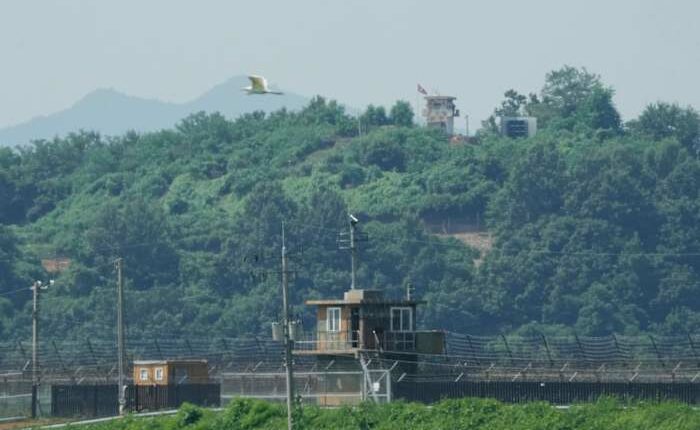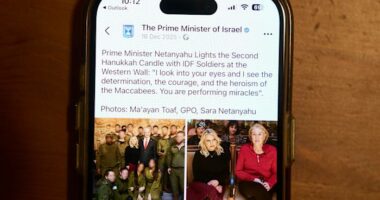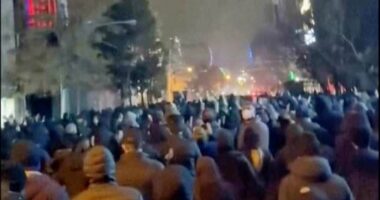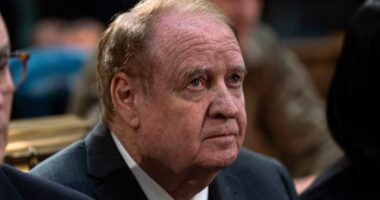Share this @internewscast.com

SEOUL – The military in South Korea reported on Saturday that they have observed North Korea starting to remove some loudspeakers from the border shared with South Korea. This development comes shortly after South Korea decided to dismantle its own loudspeakers, which had been used to broadcast anti-North Korean messages, aiming to reduce border tensions.
The Joint Chiefs of Staff of South Korea did not provide details on the exact locations from which North Korea is pulling down the speakers and mentioned that it is not yet clear if North Korea plans to remove all of them.
Recently, residents living near the South Korean border expressed their annoyance over North Korea’s use of loudspeakers to project unpleasant noises, such as animal sounds and gongs, as a retaliatory measure against South Korea’s propaganda efforts.
In a significant move, the North ceased its broadcasts in June when South Korea’s newly elected liberal president, Lee Jae Myung, halted South Korea’s own loudspeaker broadcasts. This action was the administration’s initial step to ease the longstanding tensions between the divided nations. Although the South’s military started to dismantle their loudspeakers on Monday, they did not specify what would be done with the equipment or if it could be quickly reinstated if needed.
North Korea, which is highly sensitive to criticism of its dictatorial regime and leadership by Kim Jong Un, has not yet acknowledged whether it is removing its speakers.
The previous conservative administration in South Korea had resumed loudspeaker broadcasts in June of the previous year, after years of suspension, as a countermeasure against North Korea’s tactic of sending balloons filled with litter across the border.
The speakers blasted propaganda messages and K-pop songs, a playlist designed to strike a nerve in Pyongyang, where Kim has been pushing an intense campaign to eliminate the influence of South Korean pop culture and language among the population in a bid to strengthen his family’s dynastic rule.
The Cold War-style psychological warfare campaigns further heightened tensions already inflamed by North Korea’s advancing nuclear program and South Korean efforts to expand joint military exercises with the United States and their trilateral security cooperation with Japan.
Lee, who took office in June after winning an early election to replace ousted conservative Yoon Suk Yeol, wants to improve relations with Pyongyang, which reacted furiously to Yoon’s hard-line policies and shunned dialogue.
But Kim Yo Jong, the influential sister of the North Korean leader, rebuffed overtures by Lee’s government in late July, saying that Seoul’s “blind trust” in the country’s alliance with the United States makes it no different from its conservative predecessor.
She later issued a separate statement dismissing the Trump administration’s intent to resume diplomacy on North Korea’s denuclearization, suggesting that Pyongyang — now focused on expanding ties with Russia over the war in Ukraine — sees little urgency in resuming talks with Seoul or Washington.
Tensions between the Koreas can possibly rise again later this month, when South Korea and the United States proceed with their annual large-scale combined military exercises, which begin on Aug. 18. North Korea labels the allies’ joint drills as invasion rehearsals and often uses them as a pretext to dial up military demonstrations and weapons tests aimed at advancing its nuclear program.
Copyright 2025 The Associated Press. All rights reserved. This material may not be published, broadcast, rewritten or redistributed without permission.











